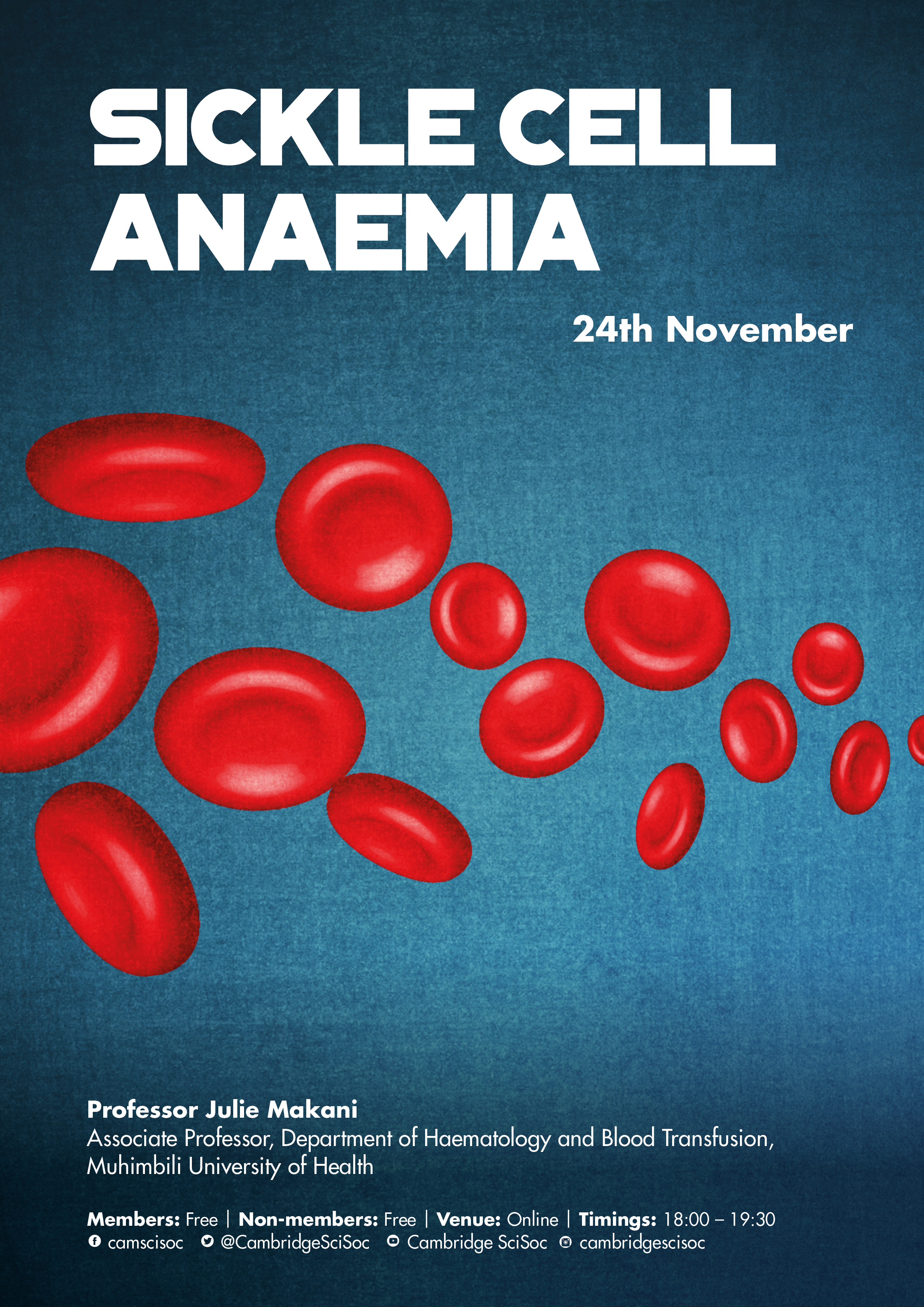
- This event has passed.
Can genomics improve health in Africa? Experience from sickle cell disease in Tanzania – Prof. Julie Makani
24 November 2020 | 18:00 - 19:30

This talk is open to all regardless of membership.
Register your interest here.
Abstract
Sickle cell disease (SCD) is considered a model disease for genomic research, as it is a single-gene disorder, causing high morbidity and mortality. The first report of gene therapy to cure SCD was from France in 2017, demonstrating the clinical applicability of genomics to improve health and cure disease. The highest public health burden of SCD in the world is in Africa (80% of 300,000 annual births), and there is concern that not only do individuals in Africa not have access to existing interventions, but they will also not likely have access to these new gene-based curative therapies. Therefore, countries in Africa have to develop a strategy to achieve two goals: the first goal is the establishment of health programmes that will provide universal access to effective evidence-based health interventions to all individuals with SCD whilst simultaneously pursuing the second goal, which is to conduct research that will lead to curative interventions using gene-based approaches. Tanzania is establishing a national public health programme for SCD and through a genomic programme, successfully conducted one of the first genome-wide association studies in SCD in Africa (n=1700; 2.4 million SNPs). The aim is to conduct gene therapy trials to cure SCD in Tanzania and use the public health system to make this intervention accessible.
Speaker Profile
Professor Julie Makani trained in Medicine (Tanzania) and Internal Medicine (UK), and completed her PhD in the clinical epidemiology of sickle cell disease. She is a senior lecturer and specialist physician in the Department of Haematology and Blood Transfusion at Muhimbili University of Health and Allied Sciences (MUHAS), in Tanzania, Africa. Tanzania has established one of the largest single-center, sickle cell disease (SCD) research programs in the world that integrates healthcare, advocacy and education. She is Principal Investigator of Sickle Pan African Research Consortium (SPARCO) within the SickleInAfrica network, Co-Principal Investigator of SickleGenAfrica, and MUHAS site Co-Principal Investigator for H3ABioNet. Professor Makani received the 2011 Royal Society Africa Award, and is a Fellow of the Royal College of Physicians and a Fellow of the Tanzania Academy of Sciences. In 2019, she was inducted into the list of BBC 100 Women. Professor Makani is currently working on the application of genomic research to improve health and find a cure for sickle cell disease.

